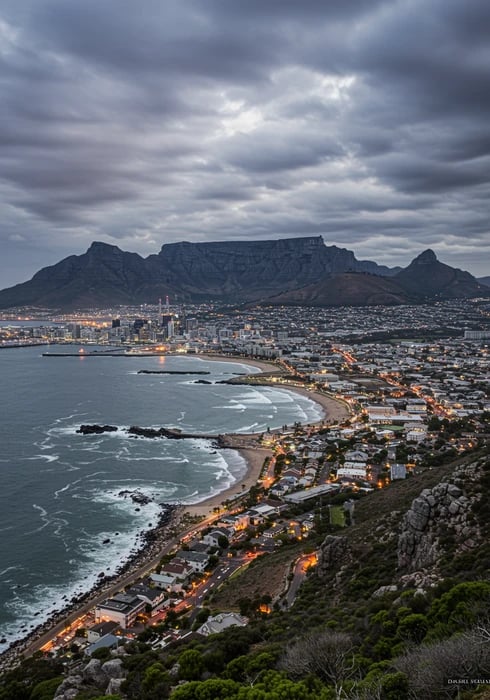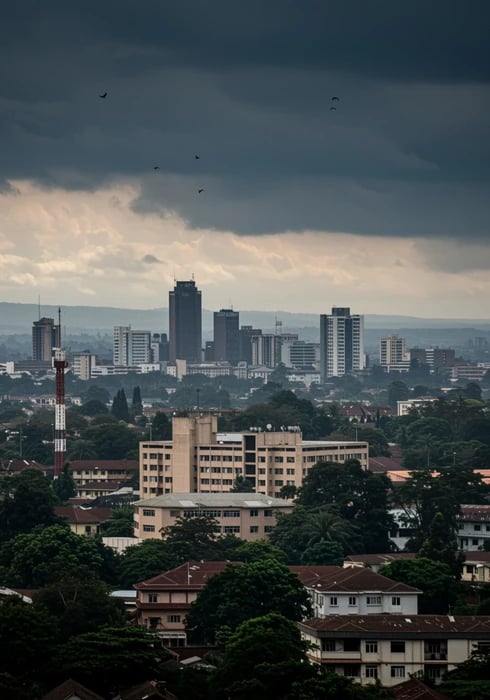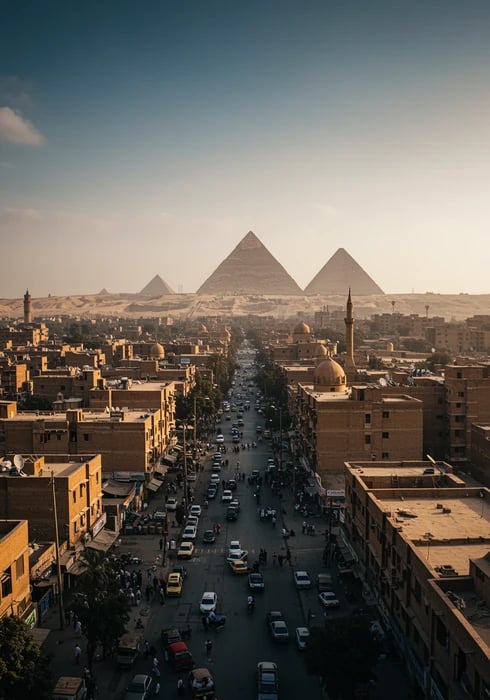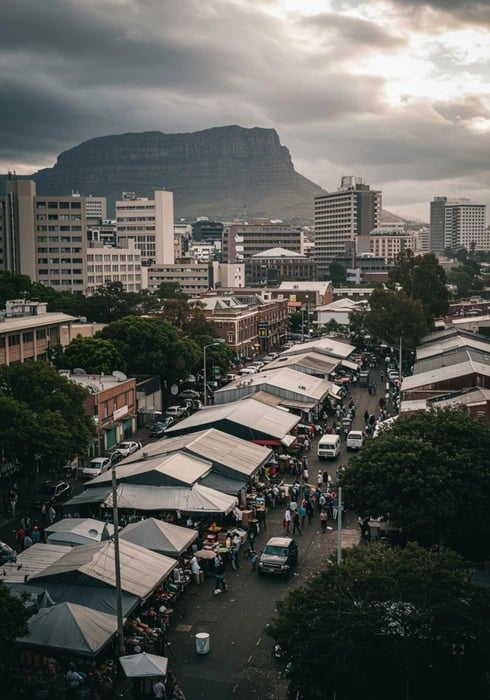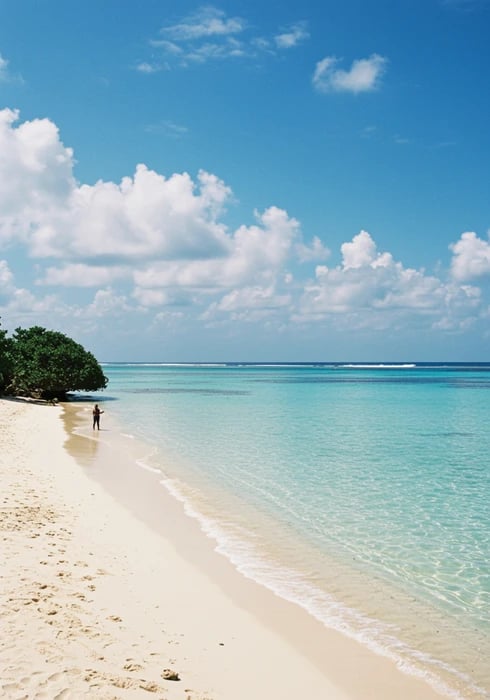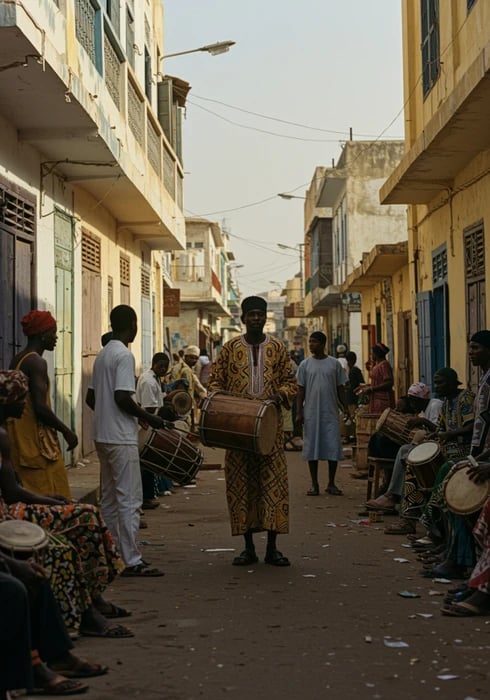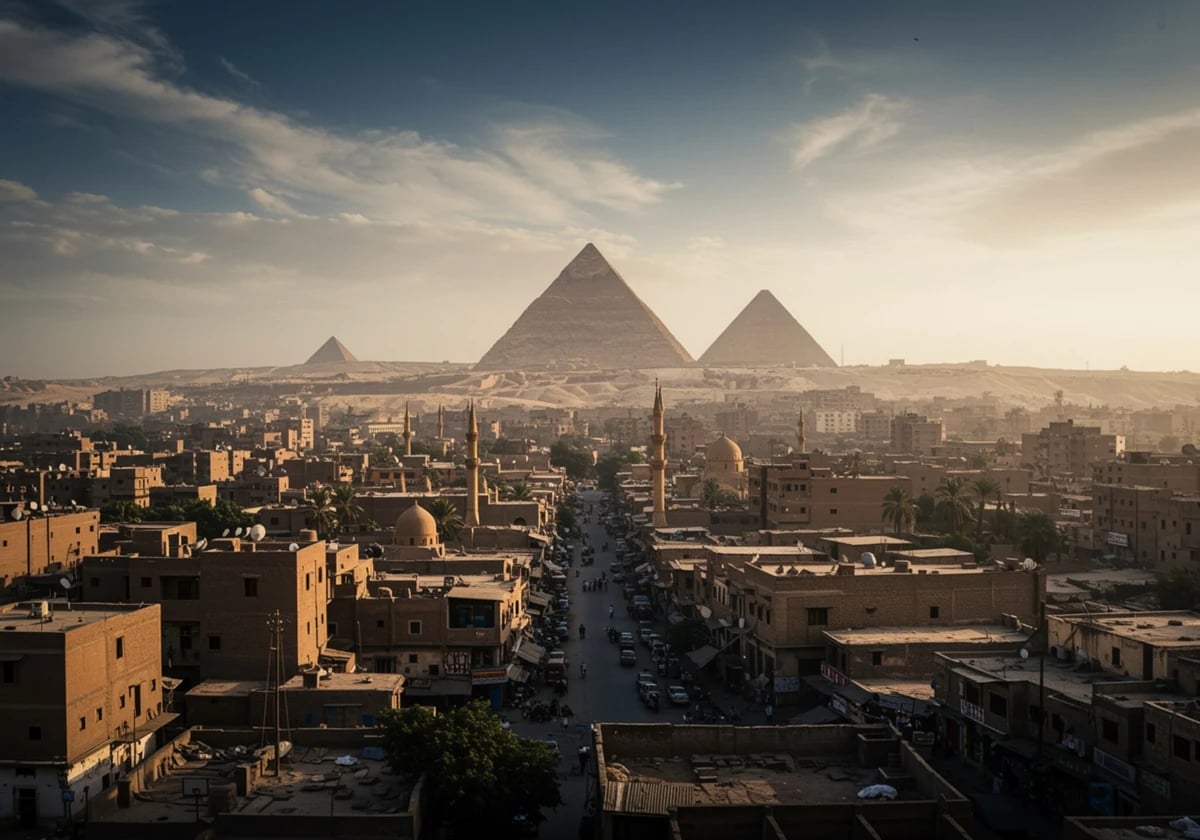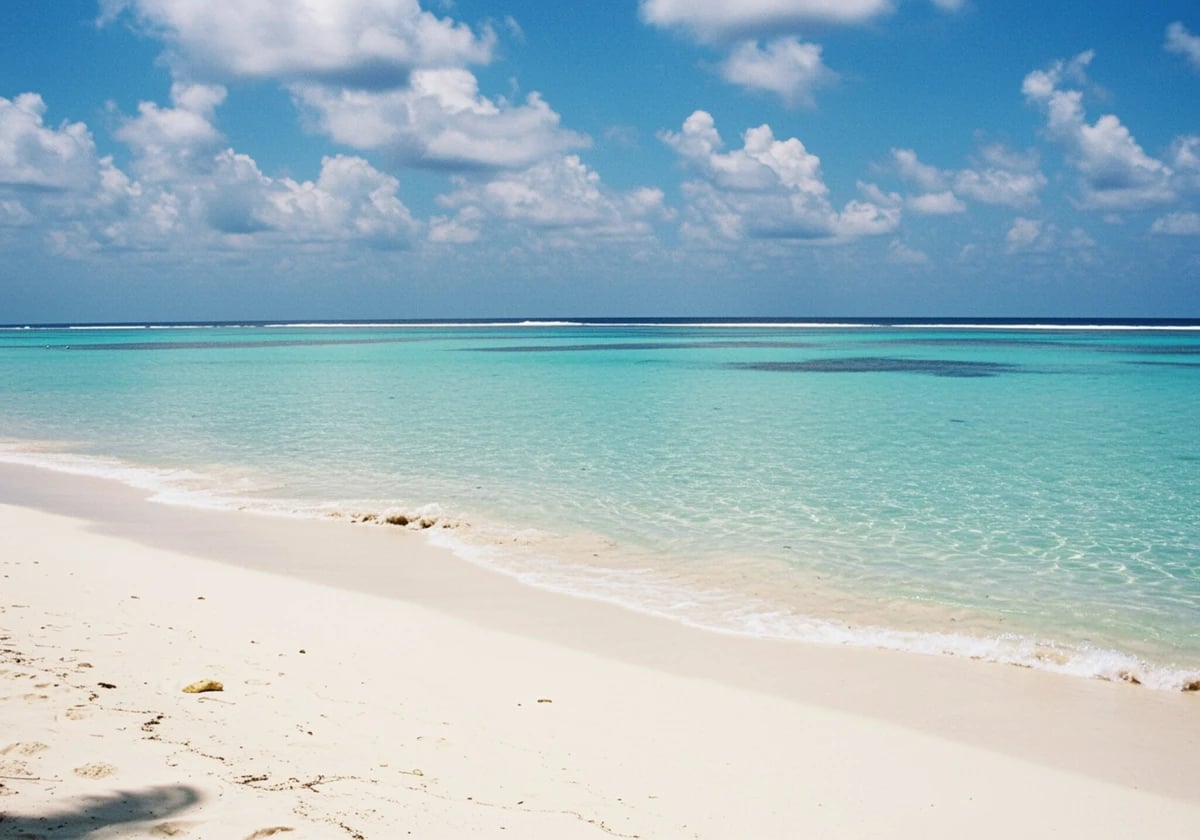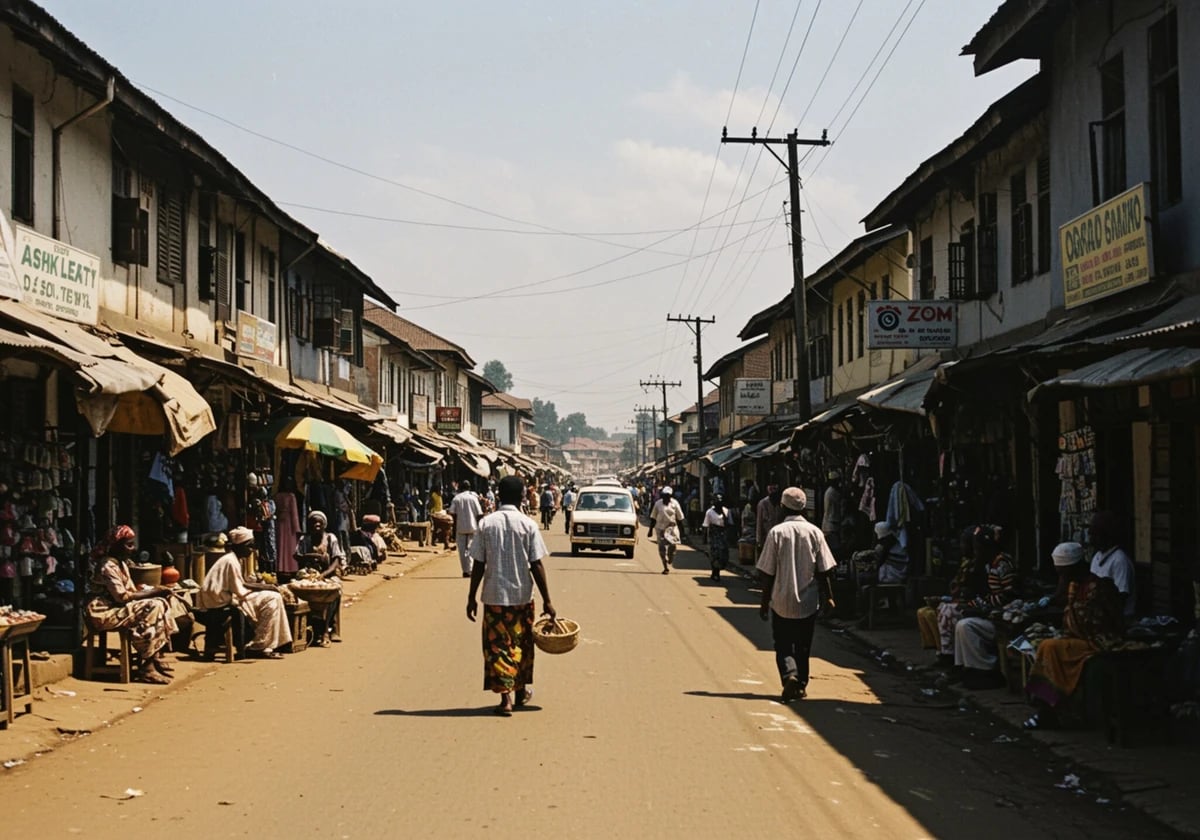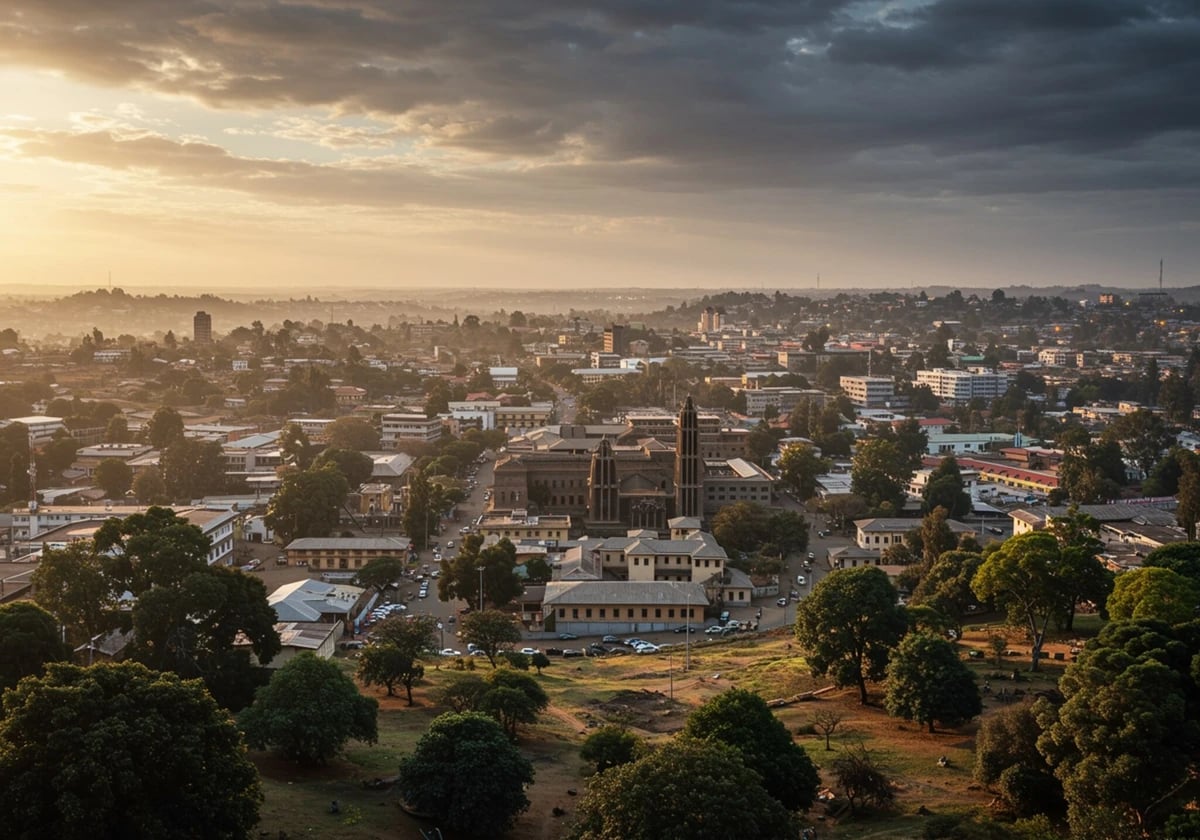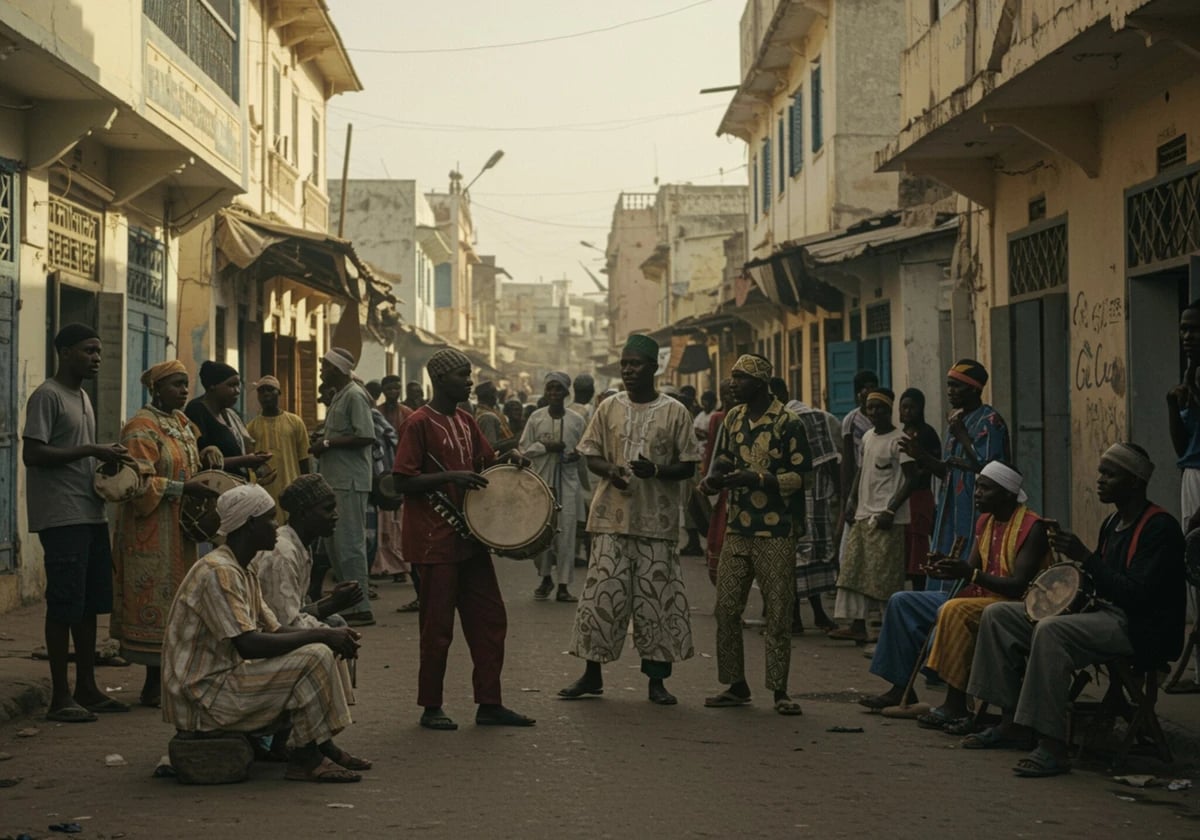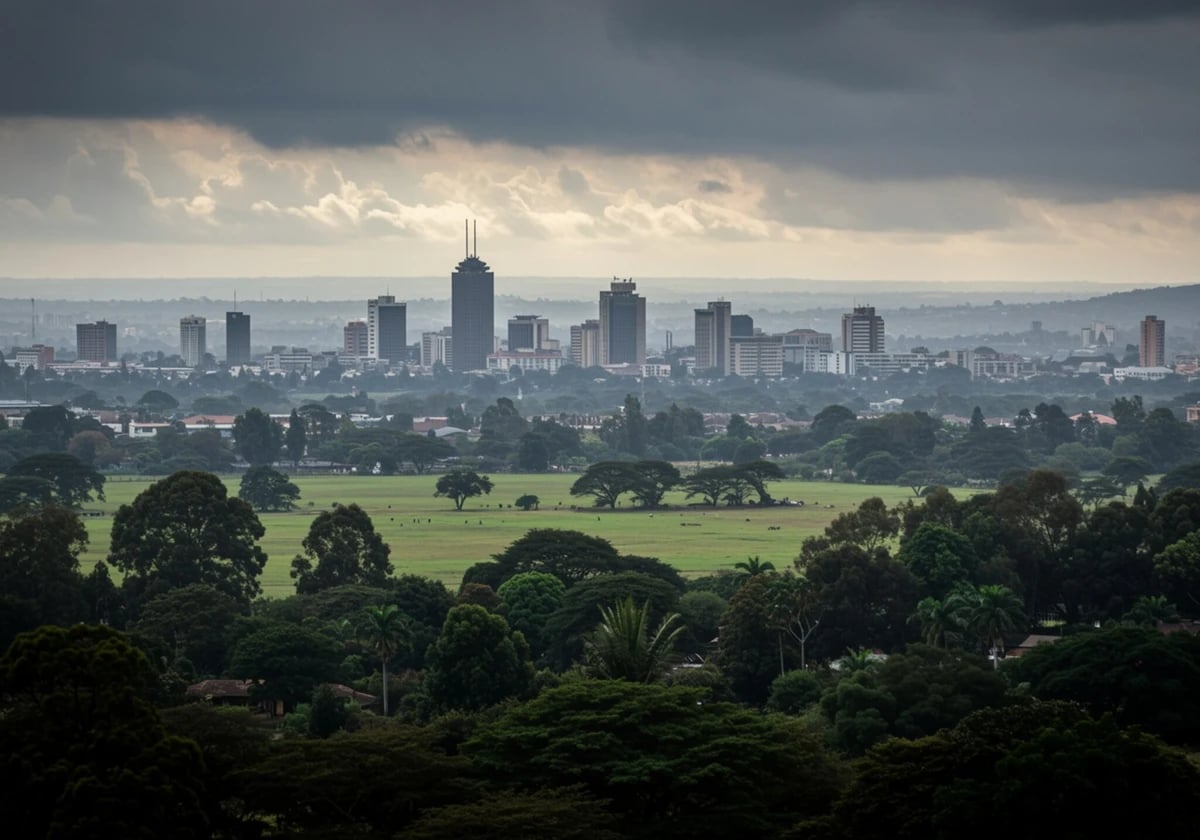Discover Africa with TICKETS.SE
Book your flights to Africa and experience the continent's diversity and beauty.














Cheap flight tickets to Africa from Sweden
Africa is a continent full of contrasts and adventures, and with TICKETS.SE you can easily find and book cheap flight tickets to Africa. Whether you are an adventurous traveler, a culture lover, or someone seeking relaxation on one of the many beautiful beaches, we have flights to Africa that suit your needs. From Stockholm, you can fly to popular destinations like Cape Town, Nairobi, and Marrakech. Our service covers all types of travelers, from budget travelers looking for low-cost flights to Africa, to those seeking last-minute deals. With our flight price comparison, you can always be sure that you are getting the best deals. Explore Africa with our tips for booking cheap flights and finding the best flight prices. Whether you are planning a long vacation or a shorter trip, we help you find the best flight prices and deals for your Africa flight. Book your flights to Africa from Sweden today and start your adventure with TICKETS.SE.
Discover amazing flight deals to Africa with last minute and best prices
Explore our latest offers on flights to Africa. Find cheap flight tickets and book your next trip with TICKETS.SE to get the best prices.
Seasonal Recommendations for Visiting Africa in Different Seasons
Africa offers unique experiences year-round, but each season has its own advantages. Understanding the impact of the seasons can help you plan your trip better and find the best Africa flight prices. Whether you're looking for cheap flights to Africa or want to book affordable flights to Africa, it's important to know the best time to travel.
Winter in Africa can be a fantastic time to visit, especially for those looking to escape the cold. Many regions offer milder temperatures and less rain, making it an ideal time for safaris and cultural excursions. For those seeking Africa flight deals, this is a great time to find low-cost flights to Africa.
Spring in Africa is a time of renewal and blooming. Many regions experience pleasant temperatures and lush greenery, making it an ideal time for nature lovers. For those looking for Africa flight bookings, spring can offer fantastic opportunities to find cheap flights to Africa.
Summer in Africa is a time for sun and adventure. Many regions offer warm temperatures and sunny days, making it a perfect time for beach trips and outdoor activities. For those seeking Africa flight tips, summer is a good time to find cheap flights to Africa.
Autumn in Africa is a time for culture and history. Many regions offer milder temperatures and fewer tourists, making it an ideal time to explore cultural and historical sites. For those looking for Africa flight search, autumn can offer fantastic opportunities to find Africa flight comparisons.
Discover the Most Popular Cities in Africa for Your Next Trip
Africa offers a variety of destinations perfect for all types of travelers. From vibrant cities to scenic landscapes, there is something for everyone. Here are some of the most popular cities to visit when booking your flights to Africa.
Practical Travel Guide for Trips to Africa
Understanding the practical aspects of traveling to Africa is crucial for a smooth and enjoyable experience. This guide provides insights on transportation, accommodation, safety, and more.
Traveling within Africa can be an adventure in itself. To find cheap flights to Africa, consider booking in advance and comparing different airlines. Domestic flights are a popular option for covering long distances quickly. For shorter trips, buses and trains can be both economical and culturally enriching. In major cities like Johannesburg and Nairobi, there are taxi services and car rentals for more flexibility. To avoid surprises, always check transportation options and prices before you travel.
Africa offers a variety of accommodation options to suit all budgets. From luxury hotels to budget-friendly hostels, there is something for everyone. To book cheap flights to Africa and save on accommodation, consider traveling during the low season. Airbnb and local guesthouses can provide a more authentic experience. It's important to read reviews and check facilities before booking. For a unique experience, try staying in a traditional lodge or a safari camp.
Safety is an important aspect of traveling to Africa. To avoid scams, always be vigilant and use trusted transportation and accommodation services. Keep your valuables safe and avoid displaying large amounts of money publicly. It's also wise to stay informed about local news and advice from embassies. To have a safe and pleasant trip, always follow local laws and traditions.
Africa is a continent rich in culture and traditions. To respect local customs, learn a few basic phrases in the local language and be aware of cultural norms. Dress respectfully, especially when visiting religious sites. Participating in local festivals and markets can provide a deeper understanding of the culture. Always be polite and show respect for the locals and their traditions.
To find cheap flights to Africa, use TICKETS.SE to compare flight prices and find the best deals. Book in advance and consider traveling during the low season to get the best prices. Flexibility with travel dates can also lead to significant savings. Use price alert services to get notifications about price changes. Choosing low-cost airlines can also be a cost-effective option for traveling to Africa.
African cuisine is as diverse as the continent itself. Try local specialties like injera in Ethiopia, tagine in Morocco, or biltong in South Africa. To enjoy authentic flavors, visit local markets and restaurants. Be cautious with street food and always drink bottled water to avoid stomach issues. Taking a cooking class can also be a fun way to learn more about the local culture and cuisine.
Planning an itinerary in Africa requires carefulness and flexibility. Decide which countries and cities you want to visit and research the best transportation options. To maximize your time, consider focusing on one region at a time. Use TICKETS.SE to book cheap flights and find the best flight prices. Be prepared for unforeseen events and always have a plan B. Including both popular and lesser-known destinations can provide a more balanced experience.
When packing for a trip to Africa, consider the climate and activities you plan to participate in. Light, breathable clothing is ideal for warm climates, while layers are important for cooler areas. Don't forget sunscreen, a hat, and comfortable shoes. For safari trips, pack neutral colors to blend in with the surroundings. A first aid kit and necessary medications are also important to have with you. Always check the baggage rules for your airline before you travel.
Hidden Gems in Africa: Discover Lesser-Known Destinations
Africa is full of hidden gems waiting to be discovered. These lesser-known destinations offer unique experiences beyond the usual tourist paths. Here you can find cheap flights to Africa and enjoy authentic adventures.
Airlines Offering Flights to Africa
Explore various airlines offering flights to Africa from Sweden. Here you will find information about their services and what they offer to make your journey comfortable and affordable.
Here is a list of airlines offering direct and connecting flights from Sweden to various destinations in Africa. These airlines offer a wide range of services to meet all travelers' needs.
Discover Different Types of Destinations in Africa
Africa offers a variety of experiences for travelers. From sunny beaches to historical sites, nature escapes, and cultural adventures, there is something for everyone. Explore these destination types to find your perfect trip.
Africa's coastline is home to some of the world's most stunning beaches. Whether you're seeking relaxation or water sports, these destinations offer a perfect beach experience.
Africa is rich in history and culture. These destinations offer a glimpse into the continent's fascinating past and cultural heritage.
Africa is known for its amazing nature experiences. From savannas to rainforests, these destinations offer a chance to experience nature's wonders.
Africa is a melting pot of cultures and traditions. These destinations offer a deep dive into the continent's rich cultural heritage.
For those seeking thrill and adventure, Africa offers a variety of activities from mountain climbing to safari tours.
Discover Budget-Friendly Destinations in Africa for Your Next Trip
Africa offers many affordable destinations for travelers looking to experience the continent's rich culture and nature without breaking the bank. Here are some of the most cost-effective destinations to consider.
Important Information About Flights to Africa
Discover how TICKETS.SE can help you find the best deals on flights to Africa. We compare flight prices from various airlines to ensure you get the most affordable options.
20 Most Popular Routes from Sweden to Africa
Explore the most popular flight routes from Sweden to Africa. This information will help you plan your trip better and understand the different options for booking cheap flights to Africa.
| Route | General | Distance | Duration | Time Zone | Airlines | Layover | Best time | Visa |
|---|---|---|---|---|---|---|---|---|
| Stockholm → Cairo | 💸 EGP Arabic | 3,200 km | 5+ hours | +1 hour | EgyptAir, SAS | Non-stop | Year-round | Visa required |
| Gothenburg → Cape Town | 💸 ZAR English, Afrikaans | 10,000 km | 13+ hours | +1 hour | KLM, Lufthansa | 1+ stops | November-March | Visa-free (90 days) |
| Malmö → Nairobi | 💸 KES English, Swahili | 7,200 km | 10+ hours | +2 hours | Turkish Airlines, Qatar Airways | 1 stop | June-September | Visa on arrival (90 days) |
| Stockholm → Marrakech | 💸 MAD Arabic, French | 3,700 km | 5+ hours | -1 hour | Ryanair, Norwegian | Non-stop | March-May | Visa-free (90 days) |
| Gothenburg → Addis Ababa | 💸 ETB Amharic | 6,000 km | 9+ hours | +2 hours | Ethiopian Airlines, Lufthansa | 1 stop | October-February | Visa on arrival (90 days) |
| Malmö → Dakar | 💸 XOF French | 5,500 km | 9+ hours | -1 hour | Air France, Turkish Airlines | 1 stop | November-April | Visa-free (90 days) |
| Stockholm → Lagos | 💸 NGN English | 6,200 km | 8+ hours | +1 hour | British Airways, KLM | 1 stop | December-March | Visa required |
| Gothenburg → Accra | 💸 GHS English | 6,000 km | 9+ hours | +1 hour | KLM, Turkish Airlines | 1 stop | November-March | Visa required |
| Malmö → Casablanca | 💸 MAD Arabic, French | 3,500 km | 5+ hours | -1 hour | Royal Air Maroc, Lufthansa | 1 stop | March-May | Visa-free (90 days) |
| Stockholm → Johannesburg | 💸 ZAR English, Afrikaans | 10,200 km | 13+ hours | +1 hour | SAS, Lufthansa | 1+ stops | November-March | Visa-free (90 days) |
| Gothenburg → Tunis | 💸 TND Arabic, French | 2,500 km | 4+ hours | 0 hours | Tunisair, Lufthansa | 1 stop | March-May | Visa-free (90 days) |
| Malmö → Luanda | 💸 AOA Portuguese | 7,800 km | 11+ hours | +1 hour | TAAG Angola Airlines, Lufthansa | 1 stop | May-October | Visa required |
| Stockholm → Kampala | 💸 UGX English, Swahili | 7,000 km | 10+ hours | +2 hours | Turkish Airlines, Qatar Airways | 1 stop | June-September | Visa on arrival (90 days) |
| Gothenburg → Dar es Salaam | 💸 TZS English, Swahili | 7,500 km | 11+ hours | +2 hours | KLM, Qatar Airways | 1 stop | June-September | Visa on arrival (90 days) |
| Malmö → Algiers | 💸 DZD Arabic, French | 2,800 km | 4+ hours | 0 hours | Air Algerie, Lufthansa | 1 stop | March-May | Visa required |
| Stockholm → Maputo | 💸 MZN Portuguese | 10,500 km | 14+ hours | +1 hour | Qatar Airways, Turkish Airlines | 1+ stops | May-October | Visa on arrival (30 days) |
| Gothenburg → Harare | 💸 ZWL English | 9,500 km | 13+ hours | +1 hour | Lufthansa, Qatar Airways | 1+ stops | May-October | Visa on arrival (90 days) |
| Malmö → Abidjan | 💸 XOF French | 6,000 km | 9+ hours | -1 hour | Air France, Turkish Airlines | 1 stop | November-April | Visa required |
| Stockholm → Windhoek | 💸 NAD English, Afrikaans | 9,000 km | 13+ hours | +1 hour | Lufthansa, Qatar Airways | 1+ stops | May-October | Visa-free (90 days) |
| Gothenburg → Kigali | 💸 RWF English, French | 7,000 km | 10+ hours | +2 hours | KLM, Turkish Airlines | 1 stop | June-September | Visa on arrival (30 days) |
Frequently Asked Questions About Flights to Africa from Sweden
To find cheap flight tickets to Africa, use TICKETS.SE to compare prices from different airlines. Book in advance and consider traveling during the off-season to get the best deals. Flexibility with travel dates can also help reduce costs.
There are several airlines offering flights to Africa from Sweden, including Ethiopian Airlines, Turkish Airlines, and Qatar Airways. These airlines are known for their competitive prices and good service. Use TICKETS.SE to compare flight prices and find the best option for you.
The best time to book cheap flights to Africa is usually a few months in advance. To get the best prices, consider booking during the off-season, which is between May and September. Use TICKETS.SE to monitor price changes and book when prices are lowest.
Popular destinations in Africa from Sweden include Cape Town, Nairobi, Marrakech, and Cairo. These cities offer rich culture, history, and stunning landscapes. Use TICKETS.SE to find flights to these destinations and plan your trip.
To book cheap flights to Africa from Stockholm, use TICKETS.SE to compare flight prices and find the best deals. Be flexible with your travel dates and consider flying with low-cost airlines to save money. Book in advance to get the best prices.
Some of the most common airports in Africa include OR Tambo International Airport in Johannesburg, Jomo Kenyatta International Airport in Nairobi, and Cairo International Airport in Cairo. These airports are major hubs for international flights and offer many connections to other parts of the continent.
For a smooth flight to Africa, make sure to have all necessary travel documents, including passport and visa. Pack light and comfortably, and remember to check any vaccination requirements. Use TICKETS.SE to stay updated on flight prices and offers.
Use TICKETS.SE to effectively compare Africa flight prices. The platform allows you to see prices from different airlines and find the best deals. Be flexible with your travel dates and consider booking during the off-season to get the lowest prices.
To find the best last-minute deals for Africa flights, use TICKETS.SE to quickly compare prices and book directly. Look out for special offers and discounts that may appear close to the departure date.
Visa requirements for travel to Africa vary depending on the destination. Many countries offer visas on arrival, but it's important to check specific requirements for your destination in advance. Use TICKETS.SE to get information on visa requirements and other travel preparations.
To book low-cost flights to Africa, use TICKETS.SE to compare flight prices and find the best deals. Be flexible with your travel dates and consider flying with low-cost airlines. Book in advance to get the best prices.
To find cheap flights to Africa, use TICKETS.SE to compare prices and book in advance. Be flexible with your travel dates and consider traveling during the off-season. Look out for special offers and discounts to save money.
Traveler reviews and ratings for various destinations in Africa

Discover Africa's Amazing Destinations
For those seeking adventure and nature experiences, Africa offers a variety of destinations. From safaris in Kenya to hikes in the Atlas Mountains in Morocco, there are countless opportunities to experience the continent's natural beauty. With TICKETS.SE, you can find cheap flights to Africa and plan your trip with ease. Whether you're looking for low-cost flights to Africa or last-minute deals, our platform helps you find the best options for your journey.
Cultural experiences are also a big part of what Africa has to offer. Visit the colorful markets in Marrakech, experience the rich music culture in Nigeria, or explore the historical sites in Ethiopia. With TICKETS.SE, you can easily book cheap flights to Africa and discover these amazing destinations. Our platform makes it easy to search for Africa flights from Sweden and find the best deals for your trip. Whether you're traveling from Stockholm or any other city in Sweden, you can rely on TICKETS.SE to find the best flights to Africa.
Discover the best global flight deals with TICKETS! Our iOS app scans thousands of flights from top airlines and providers, delivering the best offers directly to you.


